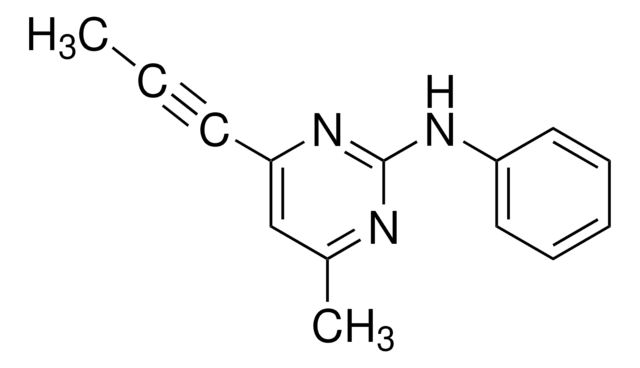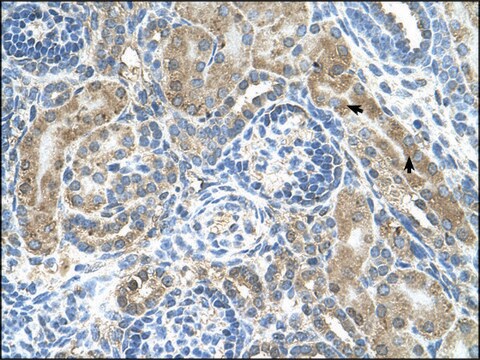BCR052
Benzo[ghi]perylène
BCR®, certified reference material
Synonyme(s) :
1,12-Benzoperylene
About This Item
Produits recommandés
Qualité
certified reference material
Agence
BCR®
Pureté
>99.7%
Fabricant/nom de marque
JRC
Technique(s)
HPLC: suitable
gas chromatography (GC): suitable
Point d'ébullition
>500 °C (lit.)
Pf
277-279 °C (lit.)
Format
neat
Température de stockage
2-8°C
Chaîne SMILES
c1cc2ccc3ccc4ccc5cccc6c(c1)c2c3c4c56
InChI
1S/C22H12/c1-3-13-7-9-15-11-12-16-10-8-14-4-2-6-18-17(5-1)19(13)21(15)22(16)20(14)18/h1-12H
Clé InChI
GYFAGKUZYNFMBN-UHFFFAOYSA-N
Vous recherchez des produits similaires ? Visite Guide de comparaison des produits
Remarque sur l'analyse
BCR052
Informations légales
Mention d'avertissement
Warning
Mentions de danger
Conseils de prudence
Classification des risques
Aquatic Acute 1 - Aquatic Chronic 1
Code de la classe de stockage
11 - Combustible Solids
Classe de danger pour l'eau (WGK)
WGK 2
Point d'éclair (°F)
Not applicable
Point d'éclair (°C)
Not applicable
Faites votre choix parmi les versions les plus récentes :
Certificats d'analyse (COA)
Désolés, nous n'avons pas de COA pour ce produit disponible en ligne pour le moment.
Si vous avez besoin d'assistance, veuillez contacter Service Clients
Déjà en possession de ce produit ?
Retrouvez la documentation relative aux produits que vous avez récemment achetés dans la Bibliothèque de documents.
Notre équipe de scientifiques dispose d'une expérience dans tous les secteurs de la recherche, notamment en sciences de la vie, science des matériaux, synthèse chimique, chromatographie, analyse et dans de nombreux autres domaines..
Contacter notre Service technique![Benzo[ghi]perylène analytical standard](/deepweb/assets/sigmaaldrich/product/structures/154/740/c50ff1be-dfb4-4159-a98c-9cecf9206ad3/640/c50ff1be-dfb4-4159-a98c-9cecf9206ad3.png)



![Benzo[k]fluoranthene for fluorescence, ≥99%](/deepweb/assets/sigmaaldrich/product/structures/277/320/3e615f9f-3887-40f6-b176-bc1eb9b4832c/640/3e615f9f-3887-40f6-b176-bc1eb9b4832c.png)


